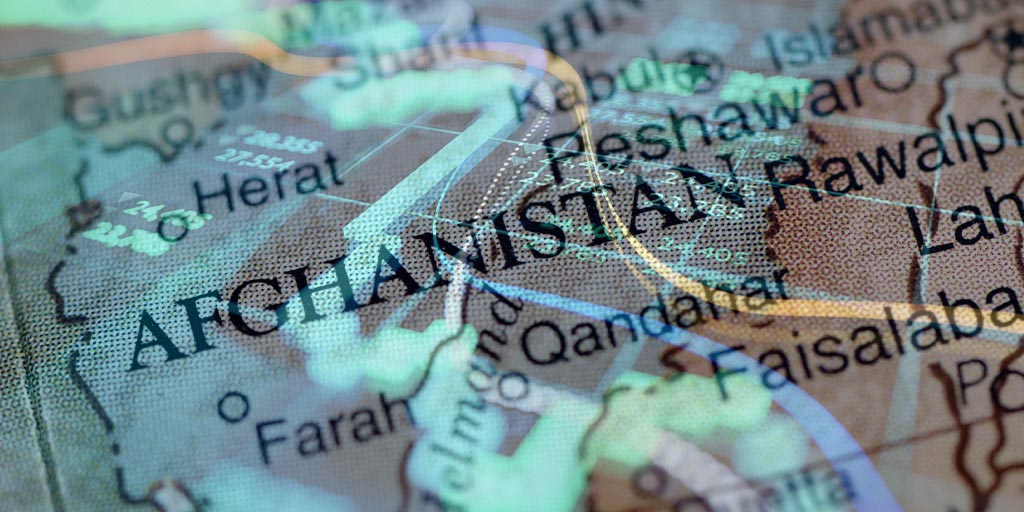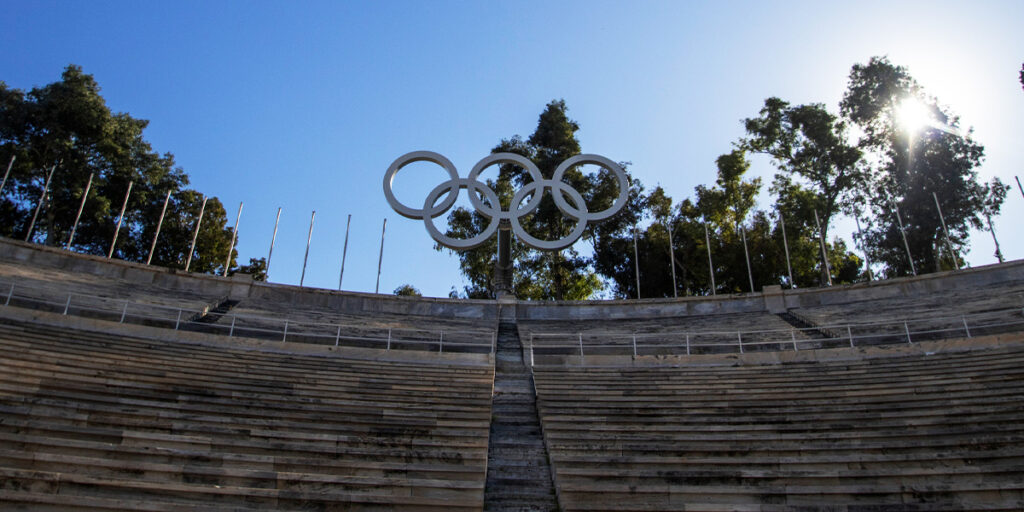We are only in the second year of the 2020s, but crisis seems to capture the theme of the decade already. Covid is a crisis that won’t go away. Our nation continues to be plagued by a political crisis of steep divide that continues to widen. The situation in Afghanistan hit crisis level this past week. Opinions are running rampant on the political and social implications. I wanted to spend some time covering the economic implications of these tragic events and what Afghanistan means to the Market.
Afghanistan is a small country of 40 Million people with very little economic influence around the globe. The vast majority of its people live in poverty. Unlike many Middle East nations, Afghanistan is not rich in Oil. For perspective, Afghanistan has the same population size as California but a fraction of its economic output. With $20 Billion in GDP, Afghanistan ranks 116th around the world. California, as a stand-alone, would rank 5th at $3 Trillion. From an economic standpoint, Afghanistan doesn’t move the needle whatsoever. But the geopolitical significance of Afghanistan cannot be overstated, which definitely has the Market’s attention. It’s called the “Graveyard of Empires” for a reason.
No matter how you slice it, the imagery of Afghans and Westerners stranded in Kabul after the Taliban takeover was not a good look for the United States. It was another example to our allies and adversaries that today’s America can’t always be trusted. Democracy is having a tough go. It’s losing friends. This is a very new concept around the world, one that is not instilling confidence for the stability of the World Order. Of course, getting out of Afghanistan has been widely popular with the American people. But how it happened and what it leaves is stoking the ire and the fear.
China, Russia and Iran are the most likely candidates to fill the void that America leaves. They all want greater influence in that part of the world. China is also looking at American war fatigue and might conclude that the US won’t follow through on threats regarding Hong Kong and Taiwan. They clearly saw Putin take Crimea a number of years ago with next to no consequence. China and Russia play the long game. And their leaders don’t face routine elections. They have patience. That’s a risk that’s definitely out there.
The International Monetary Fund (IMF) suspended Afghanistan’s access to the $440 Million in reserves it previously allocated. Its charter permits funding only to formally recognized, legitimate governments. Thus far, the Taliban does not qualify, despite its return to power. As the Taliban was expanding its control throughout Afghanistan, the US was pulling back funding. By the time the Taliban reached Kabul, nearly all US Dollars had been repatriated from Afghanistan.
The Taliban was quick to secure what’s believed to be Afghanistan’s biggest economic prize: Trade routes. These key trade routes consist of bridges, highways, and even footpaths. They serve as strategic choke points for trade across South Asia. These are highly profitable revenue sources that the Taliban now has its fingers on. Since Afghan neighbors, particularly China and Pakistan, are willing to do business, the Taliban is pretty insulated from the decisions of the Global Elite, especially America.
Afghanistan might not have a lot of Oil. But it does have an estimated $1 Trillion in Rare Earth materials used for many digital devices and perhaps most importantly, electric batteries. That’s another prize that the Taliban possesses. It’s rather ironic, considering the Taliban bans smartphones.
Careful what you wish for. Chaos in Afghanistan could spill over throughout the region, especially to neighboring Pakistan. China has invested in huge infrastructure projects as well as extended substantial loans to Pakistan, as part of its strategic Belt & Road Initiative. Belt & Road is one of President Xi’s cornerstone policies. China has not invested much in Afghanistan. But it can’t afford for it to destabilize Pakistan. Remember, Pakistan is a nuclear nation. The investment comes with great risks.
Last month, a Chinese bus was bombed in Pakistan, killing Chinese engineers working on a major hydroelectric dam. That followed a suicide bombing at a hotel where the Chinese ambassador was staying. Both were believed to be at the hands of the Pakistani Taliban. The Chinese have been playing diplomacy, drawing a distinction between Taliban operatives. But patience will be tested. Consider this: For China, the only thing worse than US soldiers near its borders might be not having them there at all.
Iran no doubt is going to feel emboldened too in response to the Afghan crisis. They’ve already been active in defiance of the US and the Global Elite. The International Atomic Energy Agency has confirmed that Iranian centrifuges have produced uranium enriched to 60% purity. It is getting closer and closer to the 90% level required for nuclear weapons. Iran had reportedly taken a portion of its enrichment capacity offline in April as the US and Iran began their indirect negotiations. Those talks had been expected to resume this month but got pushed out to September, at the earliest. They might not happen at all now.
The crisis in Afghanistan is not limited to foreign policy and it is already impacting domestic politics at home. It adds further complication to an already complicated debate on infrastructure. It will likely also impact the future of the Federal Reserve. The situation in Afghanistan improves the chances of Jerome Powell getting a second term at the Fed. The Market likes Powell. That’s really important. President Biden had a really bad week, facing crises at every angle. Calm and continuity are coveted at the White House, given these major crises. They’re likely to play it safe on this subject. The President doesn’t need to force a Market disruption to add to his long list of challenges.
The crisis in Afghanistan likely delays a possible infrastructure package too. There was already deep divide on what a proper package looks like and how to pay for it. The bipartisan Senate bill was definitely no slam dunk in the House. The House of Representatives, best known for partisan politics in modern-day Washington, just got another topic to argue about and delay legislation. All indications suggest Republicans and Moderate Democrats in the Senate will let go of support for infrastructure if the bipartisan bill passed is tied to an additional $3.5 Trillion package pushed by the Progressives in the House. That plan comes with increased taxes which the Market doesn’t like, but has already assigned a low probability of passage anyway. Democrats are fighting amongst themselves in this case. The White House was aggressively seeking a bipartisan victory, something the President campaigned on. The Senate package passed provided that. In light of the crisis in Afghanistan, the President needs a victory with the American people big time. Republicans know this all too well. Whether that happens now seems to be a growing risk. The Market senses it.
From one of our Washington sources:
“If Democrats fear losing the midterm elections, then the party will push to get as much done as possible now. The party knows that losing in 2022 would doom the president’s legislative agenda. Also, failure on the infrastructure bills (especially the Senate bill) is not an option because it would support the current narrative of chaos. Failure in Afghanistan, chaos at the southern border, the inability to confront the spread of the Delta variant, plus the possible failure of President Biden’s domestic agenda would likely be catastrophic for Democrats in 2022. The fear of an election wipeout will likely keep House Democrats in line at least long enough to pass the Budget Resolution next week and keep the legislative process going.”
Just a thought here: Another thing that came out of Afghanistan this week was the clear message of patience. After 20 years, the Taliban is back in power. That’s patience. Many across the Globe seem to have it. America seems to not. Everything is about the here and now, and there’s little tolerance for failure. And it’s usually someone else’s fault. The problem is success usually takes time. It takes work. Most times, it takes failure, but not giving into it as you pick yourself up and learn from it. Success requires patience. Success and Failure have an important relationship. When something comes easy, it’s really not truly valued. Until it’s gone. Today, Washington runs on election cycles. Wall Street runs on earnings cycles. There’s so little long-term planning. The Digital Age has brought so many conveniences to our daily lives. And they’re great. But the great innovations seem to have shattered patience along the way. Instant gratification is today’s requirement. That’s a tough hurdle. It’s not sustainable.
The reopening of America has slowed in August. Economic activity has cooled in the face of the Delta spread. Apple and Schwab just delayed their return to office until January, following many others. High-frequency data on restaurants, air travel and leisure spending confirm the slowdown. Americans are traveling less and eating out at reduced levels from June and July. That’s a trend that might continue for the rest of the year. That’s a trend that will really hurt Small Business. An economy dependent on Consumer spending relies a great deal on psychology. If people are concerned, they tend to tighten their wallets. Activity slows. Until restaurants, hotels and stadiums across the country reach full capacity, a sustainable American economic recovery will fall short. There are too many jobs and too many Dollars tied to American discretionary spending out and about.
There was some really choppy price action this week on Wall Street. But the S&P closed out the week very near its all-time high, reached Monday. That marked 49 record highs for S&P this year. It’s been quite remarkable. But the participation is shrinking. There has been substantial corrective price action below the surface. Quality has been leading of late. Microsoft and Apple are atop the list in that category. The biggest Market driver higher this Summer has been Q2 earnings. They have been strong and many on the Street are betting on a continued economic recovery. It’s getting more challenging though. Trading volume has been light, typical of this time of year. It usually picks up after Labor Day. But Markets can definitely move on lower volume. The price action this week seemed a little different to us this time. The risks are growing and rewards at this stage are looking less compelling; At least in the near-term, meaning the next few weeks. So hang on tight. Volatility is nothing new for August. September gets it too. We know what to do.
Have a nice weekend. We’ll be back, dark and early on Monday.
Mike







